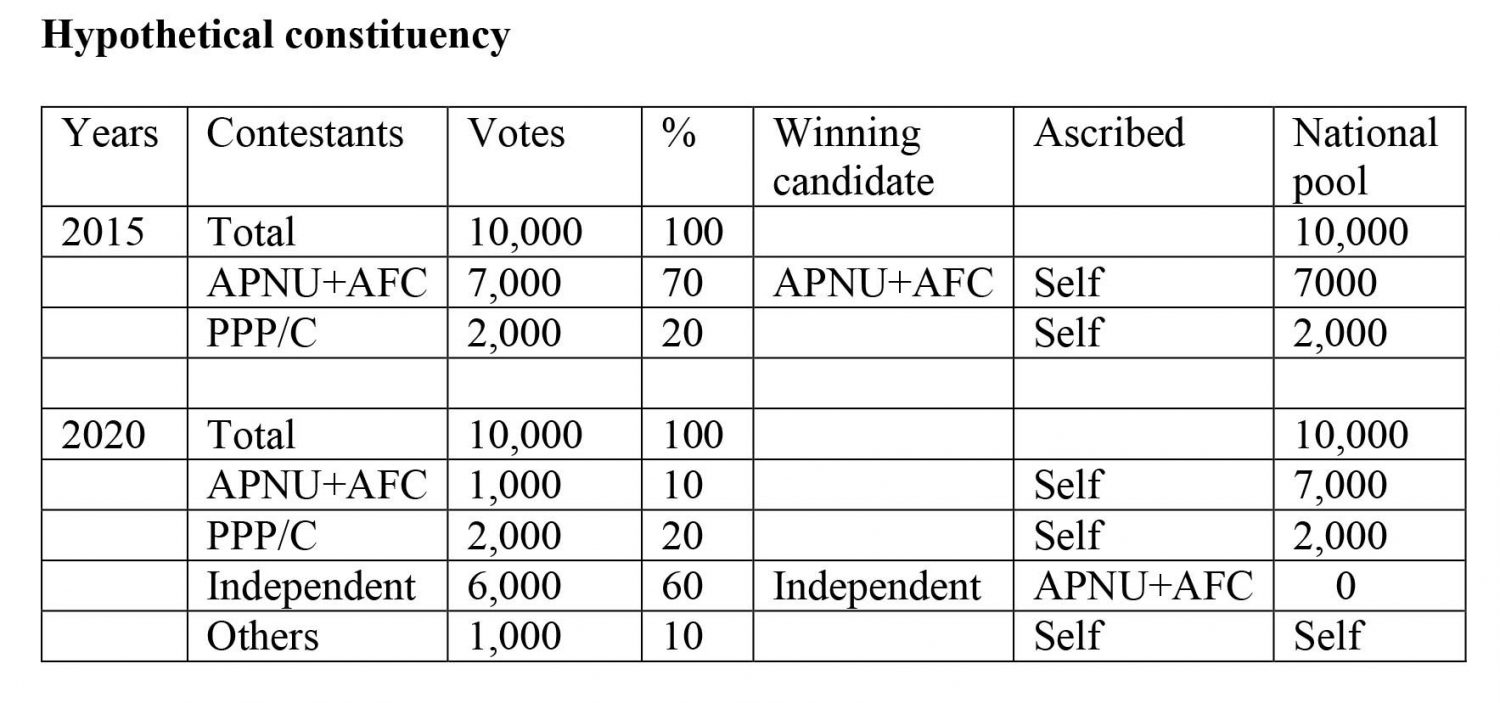
Many have noted that what was proposed last week would be achieved in a fashion that would leave us with a weak and at times non-existent opposition. We have been taught to perceive of political opposition mainly as expressed by the Westminster model, i.e. located in the competitive environment of parliament. While this may work adequately in a homogeneous political system, it does not work for us, particularly in the constitutional arrangement we have created for ourselves. The truth is that an opposition can exist at many points in the system, and my proposed presidential system has to some degree taken it right into the executive. In any case, I believe that the absence of an opposition in 2015 in the example given last week came about because we needed to find a way to remove the PPP/C after more than two decades in office but that the system will normalize to there being a regular but still small opposition. A small opposition, especially if vibrant, can do the job, for we have severely weakened the autocratic possibilities of the presidency and that job is not completed. At another time we will focus on that other level of autocratic power; the oligarchies that control political parties.
There is a near universal demand for constitutional reform to produce MPs who are directly responsible and accountable to their constituents. I will now consider the legislature and seek to enhance the independence of MPs in a manner that could be disruptive to the traditional political leaderships. However, it is important to understand that success will depend upon not suggesting changes that threaten and unequally endanger the traditional political bases of the parties.


